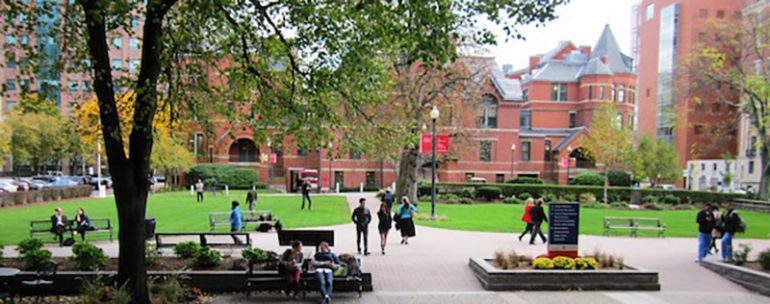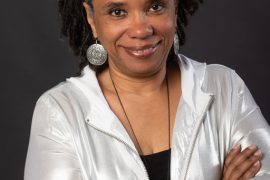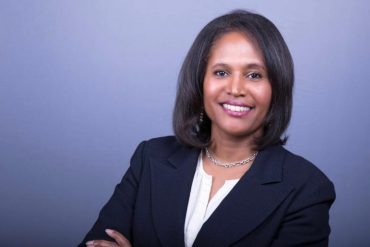Senior year of high school was by far the most stressful year of my life, and I say this after completing my first semester of college. I knew I wanted to major in journalism but that was all I knew. It seemed like everyday my teachers, counselors, and family members were bombarding me with more questions about where I wanted to attend school and why. My only criteria for my prospective schools were that they offered enough financial aid and had a well-rounded journalism program.

I never thought about the importance of choosing between a Historically Black College/University and a Predominately White Institution until my parents brought up the topic. After the stress of recommendation letters, essays, and scholarships was over I was set on attending Boston University. I was so focused on all of the top statistics (being ranked #32 in the country by U.S. News, and #5 for journalism by USA Today) that I overlooked an important one: only 5.6% of the student body was African-American. My parents started to bring up things I never thought about; they talked about how at HBCUs it would be easy to find a hairstylist on campus and how I would feel a sense of community if I attended one.
After all of the discussions we had about the pros and cons of each school on my list I was adamant about attending BU and enrolling in their College of Communication. I didn’t think I would have trouble fitting in no matter which college I chose. When school started I immediately bonded with the people who lived on my floor and they become my core group of friends. I went from having a friend group of only black and Hispanic people in high school to being the only black person in my friend group in college. And contrary to what I originally thought, it wasn’t easy. It was the first time in my life where I couldn’t vibe to Gold Digger with friends without feeling uncomfortable because as Kanye said the n-word my friends would awkwardly nod along. I had never been asked so many questions about my hair and marley twists. And it was definitely the first time where I had disagreements with friends about police brutality and the current state of race relations in our country.
I was certainly not the only minority student having a hard time adjusting to life at a PWI this past year. Racial tension has been rising on campuses around the country with incidents of racism occurring at the University of Missouri, Yale University, Princeton University, and more. Black students at these schools have had their lives threatened, been called racial slurs, and been made to feel like they don’t matter. I was scared for these students but also scared for myself because I knew that with a 5.6% black student body, an incident could occur on my campus as well.

In response to these incidents, several schools, including mine, held protests and marches to demonstrate their solidarity with the students who were constantly faced with racism from their fellow students and their administrators. At our blackout rally we wore all black and marched down the campus chanting “M-I-Z-Z-O-U” and “What do we want? Justice! When do we want it? Now!”
The organizers of the rally recited speeches about the events happening on other campuses as well as our own and what solutions will help us move forward. As upset as I was that there was still a need to have this rally in 2015 I was overjoyed at the turnout: more than 1,000 people of all races and backgrounds attended the rally. I was even more excited to see that some of my friends were there to support the cause.
After the rally I attended a discussion on solutions to lower the racial tension on all college campuses and specifically on my campus. I could barely enter the room because so many students showed up and wanted to discuss how to fix this growing problem. Some black and Hispanic students brought up the fact that my school rarely hires minority faculty and professors. Other students explained what it means to be a white ally, and how white students can help black students without completely taking over the situation. Other students brought up the everyday racism they face from their classrooms to airports. The conversation was productive and eye opening, and it was in that moment that I realized I was exactly where I was supposed to be.
Discussing what it means to be black with my white friends always puts me out of my comfort zone, but it’s a necessary conversation to have. If I went to an HBCU I would be surrounded by black people who could relate to me and I would feel much less pressure. But as I witnessed during the rally and discussion, change starts to occur when students of all races can come together with open minds and discuss what has gone wrong in the past and what we can do better to be more inclusive in the future.
Being a black student at a PWI isn’t easy. Sometimes I feel like I’m missing that magical and fun HBCU experience I’ve heard so much about. Sometimes it’s necessary to spend quality time with the few black friends that I’ve made at BU because there are things I go through only they can understand. All of that said, I wouldn’t trade my new friends for anything. We’ve had disagreements, and deep conversations and we’ve learned so much from each other. There are times where it’s been hard and I have had to step out of my comfort zone to tell them when they aren’t looking at things clearly. Even so, I can honestly say that these experiences have made me a wiser and stronger person, a person who is ready to have the tough conversations.
By: Kyler Sumter






